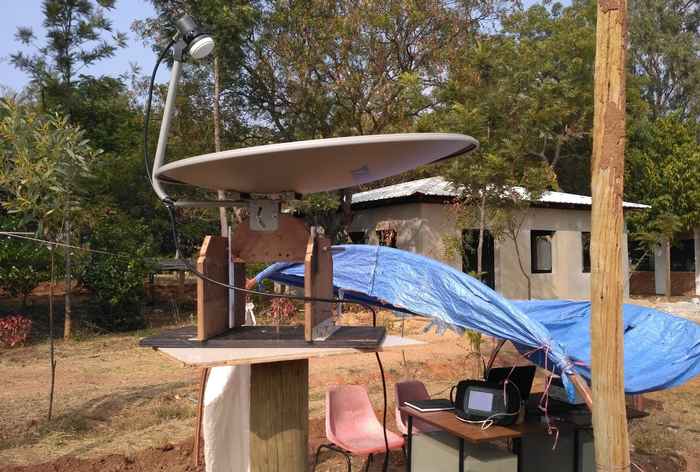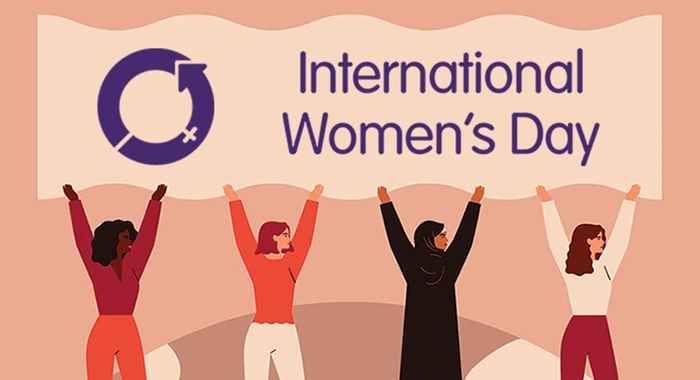Blog: International Women’s Day
By PhD candidate Kenzie Nimmo
3 March 2021

Akshatha Gopinath is a first year PhD researcher in the field of radio astronomy. Specifically, her research is focused on studying radio transient phenomena at low radio frequencies. “Currently, I am working on observing these very enigmatic radio transient sources called Fast Radio Bursts” says Akshatha, “the source of which is still a mystery”. Before joining the API, as an aspiring radio astronomer, Akshatha (with friends) built a radio telescope in her back garden using an old television dish antenna. “Despite putting it together using old cheap components, we got it to work and observed the sun with it. It was the perfect mix of engineering and astronomy, which cemented my interest in radio astronomy.”
Dr. Nathalie Degenaar is an assistant professor whose research is centred on neutron stars and black holes. Her research spans a number of topics, and tries to answer and understand many unknowns about the Universe such as what the inside of a neutron star looks like, how neutron stars and black holes can throw out large amounts of energy to their surroundings, and she also uses neutron stars and black holes (the end point of a stars life) to trace back and understand how a pair of stars live their life together before colliding. To do this, Nathalie goes beyond the standard experiments to design novel ways to explore her research interests, with her research group. Recently, Nathalie’s first ever PhD student graduated with the honorary cum laude distinction. “In my copy of his printed thesis he wrote a personal thank you in which he emphasized his appreciation for how I run my research group, saying that he considered it a great example and something to pursue himself further along his academic career” says Nathalie, “reading his message made me feel incredibly proud that I’ve managed to create a warm and inclusive atmosphere in my research group in which we can all strive as scientists”.
Dr. Antonija Oklopčić joined the API last year as a MacGillavry Fellow. Her research focuses on simulating how exoplanets evolve with time and testing predictions with observations of exoplanet atmospheres. Specifically, Antonija is interested in understanding how the atmosphere and evolution of the planet is affected when the planet is extremely close to a star. Antonija’s interest in exoplanets began during her PhD, even though her advisor’s research leant into other areas of astronomy. “I was very fortunate to have an advisor who encouraged me to explore and pursue my own research interests” Antonija adds, “I am very grateful for and proud of the fact that I had the opportunity to forge my own path, although it was not easy, especially in the beginning, to independently navigate my career in a new field”.
Dr. Samaya Nissanke is an associate professor at API. With her research group, Samaya’s work is centred on gravitational wave physics and multimessenger astronomy (e.g. combining gravitational wave observations with electromagnetic observations to explain astrophysical phenomena). Her research is focused on the most energetic events in the Universe – pairs of black holes or neutron stars that collide and produce gravitational waves and also electromagnetic radiation that we can detect with instruments on Earth and/or orbiting Earth. Samaya played a role in the first multi-messenger discovery of a binary neutron star merger, GW170817. Dr. Nissanke adds “I still have to pinch myself that all the theoretical papers and simulations that I was working on became a reality in 2017 in this spectacular and incredibly beautiful event! All of this culminated in my work behind the scenes and also, coordinating and co-writing the X-ray, radio and UVOIR follow up sections of the multi-messenger discovery paper with over 3000 co-authors!”. Samaya adds “I am most proud of the work and achievements, and the determination of my group members and students, especially their hard work and support in the team during this last year of the global pandemic.”
Annelotte Derkink is a second year PhD student whose research interests are focused on the most massive stars in the Universe, and how it is possible that such stars can form. These massive stars inject large amounts of energy into space throughout their life, giving the elements that are required to form new stars and planets, and die by exploding in a huge supernova. “They play a crucial role in the Universe” says Annelotte. Specifically, Annelotte works on observing massive stars that have just been born in a cloud to characterize and study the variability of the surrounding material which can give crucial clues into how these stars form. As an early career scientist, Annelotte has acknowledged that sometimes you work really hard on something that does not work as you thought it might, “but learning from that and continuing with this perseverance and after some time looking back on how much you learned, that is what is making me proud”.
Dr. Gibwa Musoke is a NOVA Virtual Institute of Accretion postdoctoral fellow. Her research interests lie in studying black holes that feed on surrounding material creating extremely efficient high energy processes. Some black holes are surrounded by a disk of accreting material. “Material in the inner regions of this disk can be forcefully ejected in the form of powerful, highly-focused, fast-moving outflows- jets” adds Gibwa. Dr. Musoke is especially interested in understanding how these jets are created, and why they appear the way they do. She is also interested in understanding how the disk of material around the black hole impact the formation of the jets. Gibwa was awarded the NOVA Virtual Institute of Accretion fellowship to conduct this research and perform simulations of these systems to address these interesting questions.

The theme for this years’ IWD is 'Choose to Challenge'. It’s important that we all take a moment to appreciate and celebrate the achievements of women around us, and do our part to promote gender equality and create a healthy and inclusive world for everyone. We can’t do that by sitting back and saying/doing nothing, we have to choose to challenge prejudices. I asked some of the women at API about what IWD meant to them personally:
Nathalie Degenaar: "To me, international women’s day symbolizes something much broader than equality of women; equity of people of all backgrounds, ages, genders, sexuality, religion, personality. Dedicated days like these force conversations about the many existing inequalities, hopefully translating into dedicated actions. I hope it stimulates people to be open towards another, and have respect and admiration for one another. To stay in IWD2021’s theme, I Choose to Challenge prejudices.”
Antonija Oklopčić: “International Women's Day is an important reminder for me that many freedoms and opportunities that I enjoy today should not be taken for granted. Generations of women fought and are still fighting for our right to work and vote, and to end gender-based discrimination. I really like this year's theme, "Choose to Challenge", because it reminds us that all of us can and should take part in this effort by challenging inequity that is still prevalent in all aspects of life.”
Samaya Nissanke: “I choose to continue to listen to, to support, and to mentor the next generation of women astronomer and physicists who are transforming our community with their determination and fearless courage to speak up. I choose to continue to learn about intersectional approaches, and to continue to educate myself to make our community more equitable, inclusive and diverse."
Annelotte Derkink: “International Women’s day is important to emphasis on equal opportunities for everyone. I feel grateful that at the API/UvA, we have amazing female role models to look up to and to show us that the challenge is not impossible. In that way, I, as a woman, feel strengthened in the fact to choose to challenge.”
Gibwa Musoke: “International Women's day is important as it allows us to celebrate the achievements of women across the world and empowers women to have a voice.”